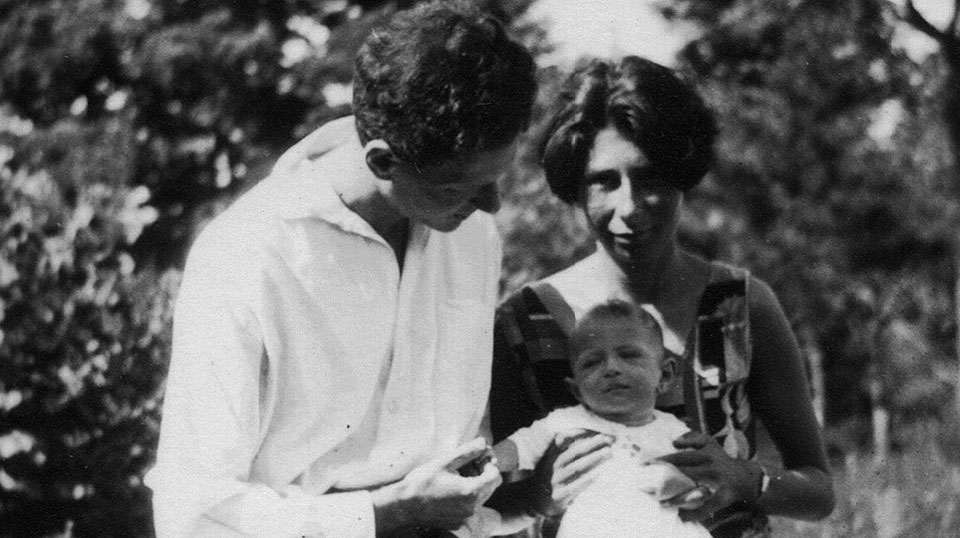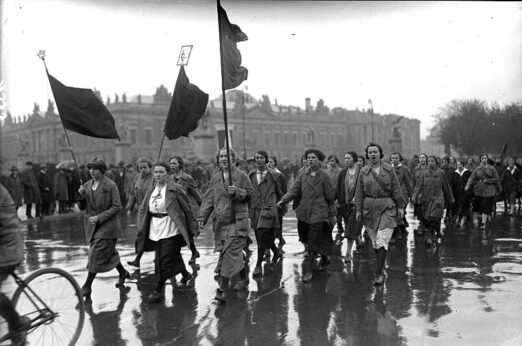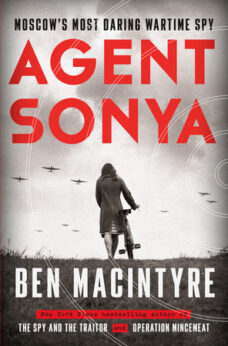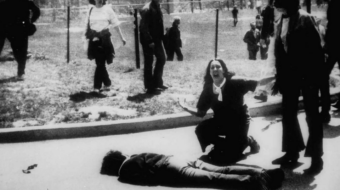
Ben MacIntyre, a British writer for The London Times, is known to spy thriller fans as the author of meticulously researched biographies of famous 20th-century spies. The latest in his series is a comprehensive biography of Jewish German-born Ursula Kuczynski, later also known as Ursula Hamburger, Ursula Beurton, and Ruth Werner.
Born in 1907, Ursula came from a distinguished family of academics. By her teenage years—especially after being beaten by a policeman’s truncheon in a demonstration—she was already a convinced Marxist and youth leader, a position strengthened in commitment during the Weimar Republic years that led up to Hitler’s Third Reich.
As an already radicalized Communist, she moved to Shanghai with her husband Rudi Hamburger, who had employment there as an architect. China in those decades was a hotbed of agitation: The Communists had already carved out a substantial “liberated zone,” the Jiangxi Soviet, from which they aimed to spread out in a tactical alliance with the Kuomintang, the right-wing Nationalist Chinese party, trying to oust the Japanese occupiers. Hiding in plain sight, as it were, and for most of the time without her husband’s knowledge, she used her social contacts in the European enclaves of Shanghai to gather information on all sorts of subjects vital for the worldwide anti-fascist movement to know.
One of the magnetic characters she met in China was the American novelist and reporter Agnes Smedley (Daughter of Earth), who encouraged her to formalize her relationship with the Soviets and become a spy on staff of the GRU, the Red Army’s intelligence service, with pay and regular assignments, and over time with supervisory functions over a network of other informants. She had close relationships with leading members of the outlawed Communist Party of China in the city, using her outwardly bourgeois cover to provide shelter and aid.

Later postings brought her to Poland, Switzerland, and the UK. For at least a couple of decades in the 1930s and 1940s, she was among the USSR’s most important windows to the outside world, transmitting data by radio and miniaturized photographs. Her work was critical to the parachuting into Hitler’s Germany of trained spies in early 1945 who could provide accurate information on the economy and the war machine, and even, with a radio-operated walkie-talkie from ground to air, suggest sites for surgical bombing.
Owing to this quite advanced technology for its day, she could remain a spymaster even over long distances and across oceans and borders. She became, for example, the handler of German-British nuclear scientist Klaus Fuchs, whose transmissions to the Soviets far, far outweighed any scribblings attributed to the Rosenbergs and were the real key to Soviet understanding of nuclear science.
Mrs. Beurton (or Burton as she was commonly known after her second marriage to British Communist Len Beurton) was a lifelong revolutionary. Wherever she found herself she tried to assist the local forces. “The cause of revolution and the military interests of the USSR were indistinguishable in her mind: whatever benefited Moscow also advanced the march of communism,” writes author MacIntyre (p. 44).
If being a spy hadn’t provided enough tension in her life, she also became the mother of three (by three different fathers—quite the free love advocate she was!), which produced additional tensions between motherhood and her secretive career.
While for many writers (and especially filmmakers) trying to sell books and movies in the Western capitalist market, it would take the path of least resistance to adopt a supercilious, above-it-all stance of judgment against those who worked contrary to U.S. interests. But MacIntyre is too smart for that, by and large allowing readers to come to their own conclusions. If one follows the logic of Communist thinking at the time, it was clear, already in China in the 1930s, and later that decade in Spain, that the capitalist countries were perfectly willing to let fascism do its dirty work on democracy so long as it kept the left far from the seats of power.
Communists were also prescient and unsentimental about Allied strategy for the post-World War II era, to abandon the temporary alliance with the USSR and hope that economic and political encirclement, and a whole spy industry of its own, would in time allow the West to destroy the very idea of socialism everywhere and reassert capitalist—and one might say imperialist—hegemony.
Agent Sonya is hardly blind to the shortcomings of Soviet communism—and MacIntyre accompanies her pain at every step. Stalin’s paranoid purges of the late 1930s especially weighed on her—she lost many a loyal friend and comrade. Stalin even had her own former husband, Rudi Hamburger, unjustly imprisoned in a gulag for a virtually incommunicado decade! The Nazi-Soviet pact of 1939 was also, as for many Communists worldwide, difficult for her to accept. She possessed a finely tuned capacity for keeping the largest picture and the longest perspective uppermost in mind, not allowing herself to be distracted even by the most heinous of crimes.
On that last point, the author says: “In time, Ursula would parrot the myth that the nonaggression pact had been a necessary, temporary truce, stymieing a Western capitalist plot to lure Nazi Germany and the USSR into a war of mutual destruction” (p. 171). There is disagreement, even on the left, on the interpretation of that shocking development, and many would point out its weaknesses and contradictions. Yet to call it an outright “myth”—after manifest displays of Western unwillingness to stop fascism in the 1930s—seems like a failure of the historical imagination in a case where it holds substantial plausibility and no rational alternative explanation is given.
When she relocated with her whole family to East Berlin in the new German Democratic Republic in 1950, she also had her run-ins with the system, though she and other members of her family found productive, gratifying positions in that part of Germany that came back after the war resolutely anti-fascist and anti-capitalist. Dreams rarely come true, not wholly anyway, and certainly not this one. But making her peace with actually existing socialism in the GDR had its good points. Notably, when asked to continue her spy work in her new/old adopted land, she respectfully declined.
In those early years of the GDR, says MacIntyre, “There was little to eat and nothing to do. Yet for the first time in two decades, she did not feel stalked. She had no radio transmitter to hide, no agents to contact, no need to conceal her politics. Ursula experienced a sensation she had never known before, and at first, did not recognize: she felt a sort of peace” (p. 318).
 By giving this perspective voice throughout the life of Ursula Kuczynski, and showing us the world through her retinas, MacIntyre has created a gripping, urgent page-turner of a book that is (Spoiler Alert!) very hard to put down. Of course, he has his share of fun along the way, recounting the bumbling antics of the British secret service that never caught on to the double agents within it own ranks and lacked the skill to elicit cooperation from the suspects under their radar.
By giving this perspective voice throughout the life of Ursula Kuczynski, and showing us the world through her retinas, MacIntyre has created a gripping, urgent page-turner of a book that is (Spoiler Alert!) very hard to put down. Of course, he has his share of fun along the way, recounting the bumbling antics of the British secret service that never caught on to the double agents within it own ranks and lacked the skill to elicit cooperation from the suspects under their radar.
The reader meets a host of characters in her life whose individuality and importance the author has ample talent to succinctly nail; the 16 pages of photographs are generous and helpful. In fact, it can truly be said, if you didn’t know this was all factual, you’d think you were reading a fast-paced nail-biter piece of fiction. His Afterword provides thumbnail sketches of what became of the most prominent other figures in her life.
Kuczynski died in 2000 at the age of 93, having lived all but the first seven years of the 20th century with all its roiling dramas and traumas, which the author captures through his subject’s eyes. Though no admirer of the USSR or communism himself, MacIntyre is fair-minded toward his subject: “Hers was a faith born of painful personal experience: the savage inequalities of Weimar, the horrors of Nazism and a world that left dead babies lying in the streets. She was ambitious, romantic, risk-addicted, occasionally selfish, huge-hearted, and tough as only someone who had lived through the worst of twentieth-century history could be. She was never betrayed” (p. 329).
In a couple of other places, apart from the “myth” of the 1939 pact, I would question MacIntryre and ask for further clarification. For example, he writes of a Bulgarian spy, Stoyan Vladov, who “had joined the Communist Party in 1914…” (p. 131), which might be simply a typo (for 1924?) as I don’t think such a party existed anywhere in 1914.
MacIntyre also writes about German Communist Gerhart Eisler who lived for some years in the United States, “where he was rumored to be the covert leader of the American Communist Party” (p. 43). I’m not sure who circulated such rumors or how far they spread, but I find that claim so lacking in substance as not to be worth repeating.
On one minor point, I found it strange that the author reports, without further comment, that in January 1941 Agent Sonya traveled by ship on a three-week voyage from Lisbon to Liverpool “via Gibraltar” (p. 203), which geographically would seem to be far off-course and meriting of some explanation if he was going to mention it.
Finally, in his penultimate, summing-up paragraph, he states, rather oddly considering Agent Sonya’s early career in Shanghai: “Her life spanned the whole of communism, from its tumultuous beginnings to its cataclysmic downfall. She embraced that ideology with the unqualified fervor of youth, and saw it die from the disappointing perspective of extreme old age” (p. 329). The death of communism would surely come as news to the people of China, Laos, Vietnam, North Korea, and Cuba, where Communists govern, and to places around the world such as India, Nepal, Japan, Greece, Portugal, Spain, South Africa, and Russia itself, where Communist parties still have millions of passionate adherents.
Ben MacIntyre
Agent Sonya: Moscow’s Most Daring Wartime Spy
New York: Crown, 2020
384 pp. with 16 pp. of photos
$28.00
ISBN 978-0241408506
Watch this short news report on Ursula Kuczynski, “Agent Sonya,” from ITV News.










